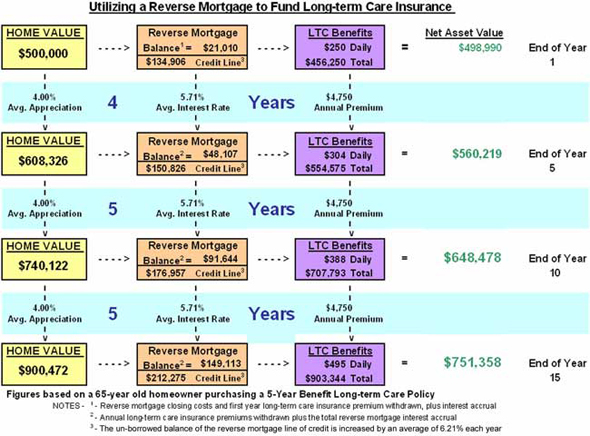Peaslee & Nirenberg at 491-492. Lemke, Lins and Picard, Mortgage-Backed Securities, 4:20 (Thomson West, 2014 ed.). Peaslee & Nirenberg at 4. Peaslee & Nirenberg at 444-445. Peaslee & Nirenberg at 436. Peaslee & Nirenberg at 445. Lemke, Lins and Picard, Mortgage-Backed Securities, 4:21 (Thomson West, 2014 ed.). Did Financiers Really Get Double-Duped with Re-REMIC Scores?, HousingWire May 19th, 2010 Silverstein, Gary J.
Tax Management Inc.: Securities Law Series (2007 ): A-54. Silverstein at A-54, A-55. Silverstein at A-55. Peaslee & Nirenberg, 44. Peaslee & Nirenberg at 1309. Peaslee & Nirenberg at 497-498. Peaslee & Nirenberg at 441. Peaslee & Nirenberg at 495. Lynn, Theodore S., Micah W. Bloomfield, & David W. Lowden. Realty Financial Investment Trusts.
29. Thomson West (2007 ): 6-22. Peaslee & Nirenberg, 501. Silverstein, A-48. Peaslee & Nirenberg, 13 Peaslee & Nirenberg at 504, 581 Peaslee & Nirenberg at 504 Peaslee & Nirenberg at 505-506. Peaslee & Nirenberg at 44,841.
For a number of reasons, mortgage-backed securities are safe financial investments. The likelihood of in fact losing money is substantially lower than it would be if you bought the stock market, for example. However, the financial investment isn't without its drawbacks. Let's gone through a few of this. MBS tend to be fairly safe investments.
federal government. Fannie Mae and Freddie Mac are privatized business, but due to the fact that they have actually remained in federal government conservatorship considering that late 2008 and have a deal to be backed in specific circumstances by the Federal Housing Financing Agency, they have a somewhat implied government warranty. If homes are foreclosed upon, it's the responsibility of the bond backer to make mortgage financiers entire.
If the real estate market takes a decline and people start strolling away from houses on which they owe more than the homes are worth, that's asking for difficulty if enough individuals default. On the flip side, individuals will quit a lot of other things to make sure they have a roof over their head, so purchasing home mortgages is still relatively safe, even in this situation.
The 5-Minute Rule for Blank Have Criminal Content When Hacking Regarding Mortgages
The downside to investing in home loans is that there's an inverted relationship in between the level of security and the reward. You'll get a higher rate of growth out of a stock if it achieves success, however there is also more potential for a loss. Since the development rate is lower for mortgage-backed securities, one thing you need to stress over is outmatching inflation.
Inflation danger is definitely something to believe about. There's likewise a prepayment threat. It's useful for a customer to settle the home mortgage as soon as possible in order to save money on interest. However, those invested in MBS don't like prepayment because it suggests you're getting less interest, which has a direct result on the quantity of return you can expect to get - what happened to cashcall mortgage's no closing cost mortgages.
The risk that the worth of a set income security will fall as an outcome of a change in rates of interest. Mortgage-backed securities tend to be more sensitive to changes in rate of interest than other bonds due to the fact that changes in rate of interest impact both the mortgage-backed bond and the home mortgages within it.
The danger that a security's credit ranking will change, leading to a decrease in worth for the security. The measurement of credit danger typically takes into account the danger of default, credit downgrade, or modification in credit spread. The threat that a security will not have substantial demand, such that it can not be offered without significant transaction costs or a reduction in value.
The threat that inflation will erode the genuine roi. This occurs when costs rise at a greater rate than financial investment returns and, as an outcome, money purchases less in the future. The danger that a modification in the total market environment or a particular incident, such as a political event, will have a negative effect on the price/value of your investment.
Swimming pools of mortgages are the collateral behind mortgage-backed securities-- MBS. Mortgage-backed securities are a major component of the bond market and lots of bond funds will have a portion of holdings in MBS. There are also funds, of all fund types, that only buy home mortgage swimming pool securities. The main type of home loan securities are stemmed from pools of mortgages ensured by among the suggested or specific government home loan companies.
Not known Facts About How Does The Trump Tax Plan Affect Housing Mortgages
Many agency MBS are established as pass-through securities, which implies that as house owners with mortgages in the pool backing an MBS make primary and interest payments, both principal and interest are paid to MBS financiers. There are both shared funds and exchange-traded funds-- ETFs-- that mainly buy mortgage-backed securities.

The finance and investment related websites routinely publish top funds by classification and these lists would be an excellent location to start research study into mortgage focused mutual fund. Taxable mutual fund of all types might own MBS. Since agency MBS have implicit or implied U.S. government support, bond funds billed as government bond funds frequently own a substantial amount of home mortgage securities.

A fund will note its leading holdings on its websites and if those holdings consist of GNMA, FNMA and FMAC bonds, the fund invests in home mortgage pool securities. An alternate method to purchase home mortgage pools is with home mortgage real estate financial investment trusts-- REITs. Home loan REITs own leveraged swimming pools of home mortgage securities.
REIT shares trade on the stock exchanges and can be bought and offered like any stock or ETF. Some mortgage REITs specifically own company MBS and others hold a combination of agency and MBS from non-agency home loan pools.
This spreadsheet was originally put together to assist make the decision to either sell mortgages that were originated, or keep them. It can also be used to aid with the choice to acquire a pool of whole loans, or a securitized home mortgage swimming pools. Two different ideas of return are described in this post.
on a pool of home mortgages is determined with the following formula: is the rate of interest that makes the present worth of the overall cash flows equivalent to the initial financial investment. Excel makes it easy for us to calculate IRR with the built in function IRR(). IRR uses an iteration process that attempts different rates of return till it discovers a rate that satisfies this equation (as a shortcut I utilize the Excel NPV function): Among the significant distinctions in between the two is that HPR lets the user forecast what rate money circulations will be reinvested at in the future, while IRR presumes that all capital will be reinvested at the IRR rate.
The smart Trick of What Are The Types Of Reverse Mortgages That Nobody is Talking About
More on that latter. The input cells remain in yellow (as are all my spreadsheets). After getting in the beginning principal balance, we go into the gross rates of interest. Next is servicing. Maintenance is from the perspective of the owners or buyers of the swimming pool. If this were a purchase of a pool of entire loans or securitized home loans, we would get in the maintenance rate (what is a non recourse state for mortgages).
In this example, we are assuming that we originated the loans and http://simonkdgk346.bravesites.com/entries/general/things-about-how-many-mortgages-can-you-have-with-freddie-mac are now deciding if we desire to hold them, or offer them to FNMA. If we keep them (as in our example) the servicing rate is not subtracted from the gross, due to the fact that we will be getting the gross rate.